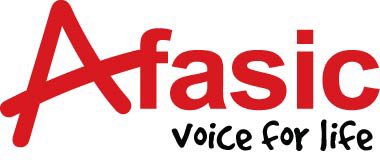Guest blog from Insane Logic
There’s a wealth of mobile
software, apps and technology devices that make our everyday lives that little
bit easier.
The past few years have
seen phenomenal growth in the tablet computer industry: last year alone sales
of PCs dropped by a staggering 98% due to the popularity of laptops and tablet
computers, according to the Marketing Tech Blog.
It is estimated that 41%
of people in the UK now regularly use a tablet. Additionally, 57% of adults
with children use the tablet for educational purposes (Rideout, 2014).
The intuitive and
interactive nature of these technologies is particularly exciting for children
and young people with speech, language and communication needs (SLCN), says Zoe
Peden, co-founder of social enterprise Insane Logic.
This innovative company
believes everyone should have the right to communicate and has set about
harnessing new technology to change the way we help children and young people
to communicate.
It’s estimated that over
one million children in the UK – that’s around one in ten – have SLCN. The
stakes are high: 50-90% of children with persistent speech, language and communication
difficulties go on to have reading difficulties and two thirds of 7-14 year
olds with serious behaviour problems have language impairments.
The good news is that the
advent of tablets and software are giving us tools we’ve never had access to
before. Insane Logic has harnessed this technology in partnership with resident
Speech and Language Therapists through the development of MyChoicePad – a
language development platform for tablets that uses symbols and signs from
Makaton.
Top tips on using table
devices
·
Things have
moved on since the days when the main people using technology in Speech and
Language Therapy were AAC practitioners. There are numerous platforms around
which can aid and enhance your work supporting children, young people and
adults with SLCN.
·
Some of the
best pieces of software allow you to measure and track progress. When setting
up user profiles, create character names for the people you support - which
also helps safeguard privacy!
·
Exploit the
camera and video functions of tablet devices – put children firmly in control.
This is such a motivating way to practice developing steady hands, a careful
eye and a sense of timing.
·
As a value for
money resource, one mobile device loaded up with a range of useful apps can
bring a little sparkle into your work across a huge caseload.
·
Engage staff
that you work with by scheduling a regular ‘app chat’ slot in team meetings.
Map out how individual apps could enhance learning. What language and guidance
could the adult provide to support learning and scaffold language development?
·
Buy an
inexpensive cable adaptor to allow children and young people to project
directly from the tablet onto your large display screen. It’s a wonderful way
to build confidence in speaking to groups, and can make an exciting addition to
a lesson or assembly!
·
Keep business
and pleasure safely separated by designating tablet devices as wholly
therapeutic resources - keeping documents, mail and admin out of your sessions.
Mencap, the UK’s leading
charity for people with learning disabilities, collaborated with Insane Logic
to enhance their ‘Bags of Ability’ sensory storytelling programme for children
aged 2-7 and their carers.
Sensory storytelling
allows children with learning difficulties to make sense of who they are and
what is happening in their lives. MyChoicePad helped the storytelling teams to
build on the communication work they were already doing and supported the
vocabulary that the children had learnt in their storybooks.
For the first time ever,
Mencap was able to measure children’s learning week-on-week, making it far
easier to track their progress.
“You’re able to gauge whether [the child] has
understood or learnt [the word], it’s not just your guess or hoping that they
got it,” says Angela Bower, a member of the storytelling team. “Using
traditional storytelling, we wouldn’t really know how much that child
understood.”
She added: “It was nice to
encourage parents and teachers to see how you can use technology in a really
positive way. If your child has communication difficulties, then having the
tablet as an interface between you and the child really, really helps.”
MyChoicePad is affordable,
fun and easy to use. It reinforces language and develops understanding. It is
now used by a variety of people with differing needs – from pre-school,
mainstream and special schools, to adults with learning disabilities in
supported living environments.
Research with our
MyChoicePad users has found that 98% see an improvement in pre-school children’s
vocabulary, while 94% report an increase in school-age children’s independence.
At Insane Logic, we know
that new technology is more than just fun for children with SEND - using
language development platforms like MyChoicePad can provide the key to a more
independent and fulfilled life.
For more information on
Insane Logic, visit www.insanelogic.co.uk. Find them on Twitter @InsaneLogicUK,
and on Facebook at facebook.com/mychoicepadapp.







